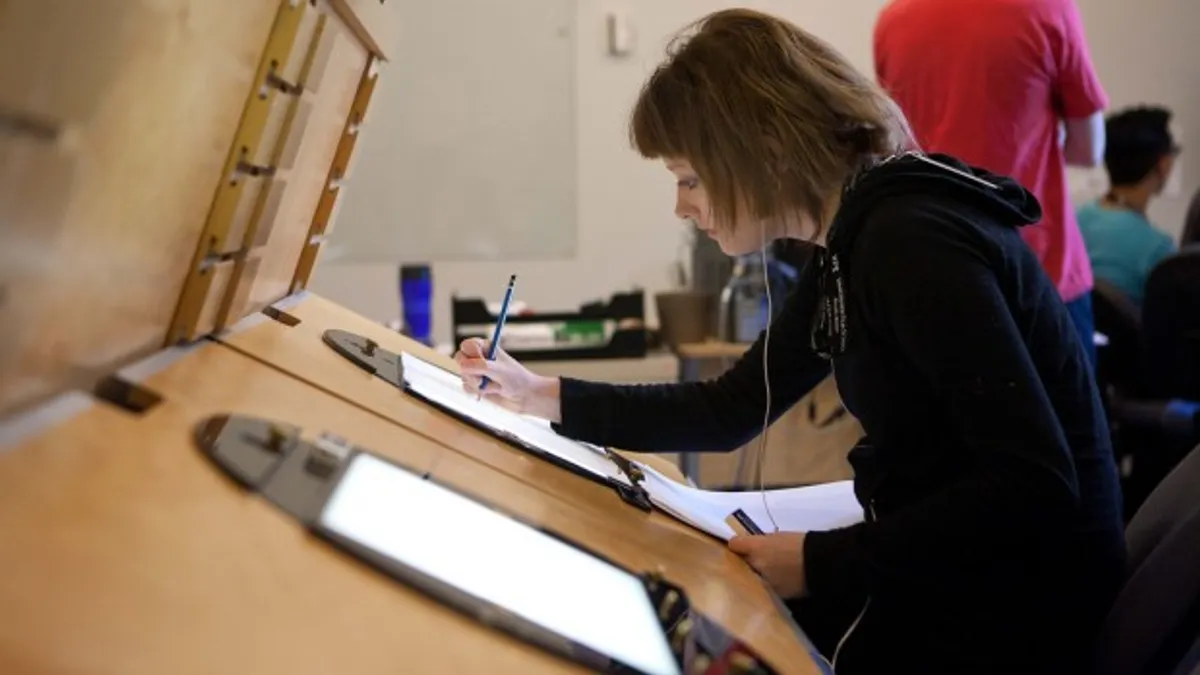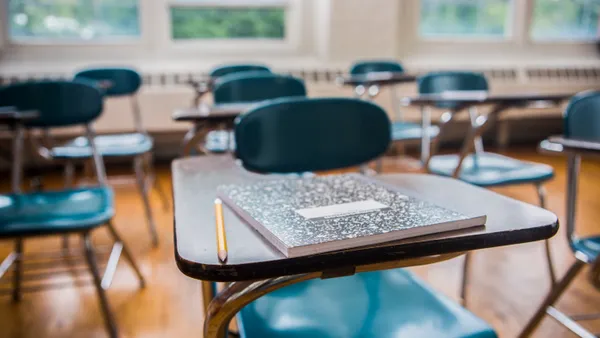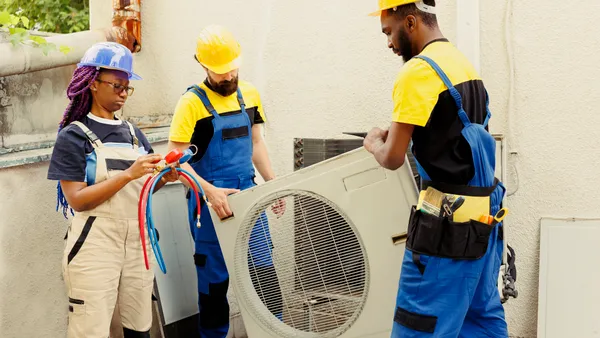Dive Brief:
- The Illinois State Board of Education voted unanimously this week to include arts as a weighted indicator of K-12 success in its school accountability metrics under the Every Student Succeeds Act, making it the first in the nation to do so, according to a press release from Arts Alliance Illinois and Ingenuity. The move puts dance, music, theater and visual arts alongside math and science as elements of a quality education.
- Starting in the 2022-23 school year, the indicator will equal 5% of every school’s total score and will consider student participation in arts courses, quality of instruction and student voice. State Superintendent Carmen Ayala made the recommendation based on a proposal from the Illinois Arts Indicator Work Group.
- “This decision is a monumental win for our children in Illinois,” Claire Rice, executive director of Arts Alliance Illinois, said in a statement. “The arts teach students to think critically and solve problems creatively. Arts learning also enhances student engagement and helps with social and emotional development. The weighted arts indicator brings us one step closer to ensuring all students experience these benefits of arts education.”
Dive Insight:
Few states recognize the arts as part of their Every Child Succeeds Act accountability plans, though the law defines success as achievement in more than just core academics. Arts and music are among subjects included in a well-rounded education, but models for how to include the arts in accountability metrics are still emerging.
Connecticut, for example, names the arts as part of its accountability system, but not for all grades. There, schools and districts are given credit for the percentage of high school students who take dance, theater, music or visual arts courses each year. In Kentucky, visual or performing arts count as a transition readiness measure meant to support well-rounded students who are ready to advance to the next setting. Annual school profile reports include information on schools’ arts programs.
There are also efforts to integrate arts and social-emotional learning into schools as part of a whole-child approach, which incorporates wraparound services and other supports to meet students' basic needs alongside academics, improving equity and resulting in better performance. Stakeholders believe arts can also boost social-emotional learning and lead to a stronger school climate, which many states also now include as an accountability metric.














